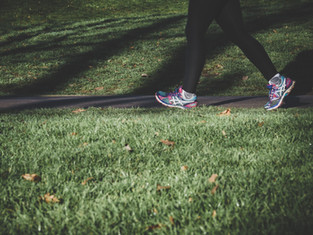Self-Care is Your Number One Priority
- Meg Pemberton

- Apr 1, 2020
- 4 min read
Updated: Apr 3, 2020
You may think that providing care for your elderly parents is your highest priority. In fact, in the hierarchy of who gets your attention first, you likely place yourself last on the list. After all, the demands for your attention are many particularly if you are the adult, married, daughter of senior parents. Add children and a career in the mix and you fall further down the list. There is credence to the widely held belief that daughters become their parent’s caregivers more often than sons. Roughly 60% of family caregivers are daughters. The average age of these daughters is 49. If you fit this demographic, you need to make sure self-care is your number one priority.
The Price of Caring for Your Elder Parents
The costs associated with caring for your elderly parents are more than financial. Health, physical and mental, shares in the cost of caregiving. One fourth of caregivers report poor health. Three fourths don’t take the time to see their own doctor. A lack of exercise and unhealthy eating is widely reported among family caregivers. About half of these caregivers suffer with depression. Caregivers facing significant stress age prematurely thus reducing their own longevity.
The case for prioritization of self-care is compelling. For years, I’ve been telling patients and their families, if you don’t care for yourself you may not be around to care for your loved ones. It sure is easy to say. However, I know personally how difficult this is to do.
The Four Essential Self-Care Musts
1. Eat Well!
You’re likely preparing meals for your elderly parents. They may have dietary restrictions; low salt, low fat, and low sugar among others. Their restrictions may benefit you if your cook the same meals for your family as well. Avoid the temptation to stop for fast food because you don’t have time to cook due to a busy schedule juggling family life and caregiving. Make time. Going out for lunchwhen you’re at work? Pack your lunch with healthy alternatives. People who eat healthy tend to feel better, have more energy, think more clearly, and are more productive.
2. Get Moving!
The Mayo Clinic notes that sitting for prolonged periods of time increases risk for a variety of health problems and early death. Hence the newly minted phrase, “sitting is the new smoking.” You don’t have to belong to a gym to exercise. Walking is king! Park the car as far away from the door as possible. Take a brisk walk on your lunch break. If possible, walk with your elderly parents. They need to keep moving too! (See my blog about the YMCA.) Take the stairs whenever possible. You’ll have more energy to provide the care your loved ones need.
3. Take Time for Yourself!
You need time for yourself in order to be your best caring for others. Time spent should be your choice of activities or events. Curl up with a good book. Better yet, join a book club. Take a day to binge watch a TV show on Netflix. Go to the theater. Take a weekend getaway trip. What haven’t you done that you’ve been craving to do? Do it! Note that carving out time to spend with family and friends is just as important as time spent alone. It is easy when care-giving to isolate yourself from your family and friends. Eating healthy feeds your body; time spent with loved ones, away from the stress of care-giving, feeds your soul.
4. Get Help!
Dieting, developing an exercise routine, and making time for yourself can be very hard to do. Recognizing when you need help and actually asking for it can be even harder. The fear of failing your parents and the associated guilt is very real. I provided wound care for my mother over a prolonged period of time. I’m a nurse so I was the one best suited to provide this care. Initially, the wound need dressing changes twice daily. I was stopping by their home on the way to work and on the way home. When I needed a break, my sisters bravely stepped into help. They even took time off from work to assist so we could go away for a weekend. I asked for help and was a better daughter for it upon my return. If you have siblings to help share the burden of care-giving, make sure you engage them early. Take turns; set up a schedule. Never say no when a friend or family member offers assistance!
The Need for Caregiving and Self Care Increases Over Time
As your transition along the journey of aging with your parents, the level of support and care- giving you provide may wax and wane. Time spent providing care for your parents, one or both, will most likely increase over time. At some point you should expect to need more assistance than you, your family, and committed friends can provide (more about this to come). Start early in the journey to ensure you are taking care of yourself. Make it a habit. Ensure that self-care is your number one priority. The benefits are too important not to.










Comments